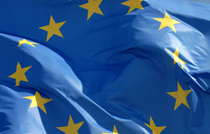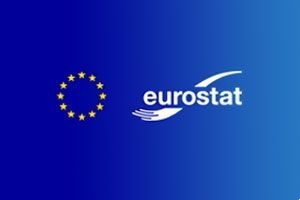Norway and Poland signed a research cooperation deal worth 290 million kroner (€37m) on 10 June, the Norwegian research council  . The money is part of a 2 billion kroner deal between the two countries focusing on green technologies, like carbon sequestration projects.The Norwegian research council has welcomed the collaboration. It is a way for Norway to develop its participation in EU framework programmes, said Jesper Simonsen, divisional director in the research council.
. The money is part of a 2 billion kroner deal between the two countries focusing on green technologies, like carbon sequestration projects.The Norwegian research council has welcomed the collaboration. It is a way for Norway to develop its participation in EU framework programmes, said Jesper Simonsen, divisional director in the research council.
Category / EU
Welcome to the EU section of the blog! Emily Cieciura (BU’s Research Facilitator – EU and International), Jo Garrad (Funding Development Manager) and Dianne Goodman (Funding Development Co-ordinator) together try to take the pain out of finding and applying for EU funding by horizon scanning many sources and placing the most important information on this page.
We blog as often as possible on everything from calls for proposals and partner searches, to networking event opportunities, all the latest on Horizon 2020 and international funding. We also use the blog to disseminate information on EUADS (BU’s EU academic training initiative), how to write brilliant proposals, how to find partners and other top tips!
New tool to find funding from British Council
 The UK EURAXESS website, which is run by the British Council, has just launched a new feature, allowing researchers to search for new funding opportunities. The types of schemes that are shown include fellowship programmes, study visits and exchange programmes.
The UK EURAXESS website, which is run by the British Council, has just launched a new feature, allowing researchers to search for new funding opportunities. The types of schemes that are shown include fellowship programmes, study visits and exchange programmes.
Researchers should be paid to communicate, Swedish VA says
 Sweden’s academics should be rewarded for communicating their research and for research collaborations, VA, an interest organisation for researchers, suggested in a proposal to government. “Money is an important incentive. That’s why we want collaboration and communication to be taken into consideration when funding is allocated,” says Cissi Askwall, secretary-general of VA.
Sweden’s academics should be rewarded for communicating their research and for research collaborations, VA, an interest organisation for researchers, suggested in a proposal to government. “Money is an important incentive. That’s why we want collaboration and communication to be taken into consideration when funding is allocated,” says Cissi Askwall, secretary-general of VA.
Lund University sees sharp dip in research output
 The number of PhD theses and research articles coming out of Lund University, one of Sweden’s best-known research institutions, has dropped in recent years, despite an increase of public funding for the university. On 13 June, the newspaper Sydsvensken reported that the number of theses from Lund in 2010 was its lowest in 10 years and that the total research output had shrunk by a third compared to 2007.
The number of PhD theses and research articles coming out of Lund University, one of Sweden’s best-known research institutions, has dropped in recent years, despite an increase of public funding for the university. On 13 June, the newspaper Sydsvensken reported that the number of theses from Lund in 2010 was its lowest in 10 years and that the total research output had shrunk by a third compared to 2007.
The advantages of winning EU funding: BU’s Dimitrios Buhalis shares his experiences
 Over the last 10 years I have had the privilege to work on half a dozen European Commission funded projects with a total income of about £1m. Most of them are relating to technology innovations and advantages with a primary focus to tourism and hospitality organisations and regional regions as well as cultural heritage. Getting European funding is complex and requires a lot of work, networking and innovative thinking. Success rates are low and it is quite demanding. Nevertheless there is a great number of benefits that comes with success. These include:
Over the last 10 years I have had the privilege to work on half a dozen European Commission funded projects with a total income of about £1m. Most of them are relating to technology innovations and advantages with a primary focus to tourism and hospitality organisations and regional regions as well as cultural heritage. Getting European funding is complex and requires a lot of work, networking and innovative thinking. Success rates are low and it is quite demanding. Nevertheless there is a great number of benefits that comes with success. These include:
- Cutting edge knowledge of the most cutting edge research problems
- Research that it is relevant to society and has an impact on a European level
- Networking across different disciplines
- Working with colleagues from around Europe
- Funding for research assistants, equipment and travel
- And yes you can travel around and sample the Belgian and not only beers ….
Perhaps the project I enjoyed most as it made me realise the impact that research can do is a recent project which I did when I was still at the University of Surrey. This was about accessible/disabled tourism and I was called to provide expertise on how to deal with information for people with disability that wanted to travel. The project lasted for 2 years and provided a series of key success factor for facilities to use and also guidelines on how those should be systematised for dissemination over the internet. Getting closely involved with people with disabilities and working out on potential solutions opened a whole world for me a
The immediate results of the projects and the other initiatives that emerged are equally impressive:
- The world’s first ACCESSIBILITY MARKET AND STAKEHOLDER ANALYSIS
- The world’s first ever book on Accessible Tourism has been published entitled “Accessible Tourism Issues: Inclusion, Disability, Ageing Population and Tourism (edited by Dimitrios and Simon Darcy and which is available to buy from Amazon) and another one book on Accessible Tourism practice that is at the last face of its editing
- One 4* publication on Enabling access to tourism through information schemes and a number of Journal articles and conference papers
- Two funded PhDs that are about to be completed
- Some more projects and proposals that will emerge soon
- The development of ENAT – the European Network for Accessible Tourism
Although not always easy, involvement with European funded projects are incredibly rewarding for their intellectual stimulation, the exposure to knowledge and networking as well as access to resources. They are also fantastic for impact to society at an international and global scale. We are about to start a new project on Electronic Marketing, mobile phones, location based services, small business and tourism and look forward to cutting edge research.
New name for FP8 just revealed
 Reporting from this years EARMA conference in Portugal, I have just heard a presentation from the DG for Research & Innovation who has revealed that this week the official new name for FP8 was launched -‘ Horizon 2020 – towards a new framework programme for research and innovation’. A bit of a mouthful so at BU we will refer to it as ‘Horizon 2020’!
Reporting from this years EARMA conference in Portugal, I have just heard a presentation from the DG for Research & Innovation who has revealed that this week the official new name for FP8 was launched -‘ Horizon 2020 – towards a new framework programme for research and innovation’. A bit of a mouthful so at BU we will refer to it as ‘Horizon 2020’!
Addicted to Facebook? Bergen researchers launch study
A research project from the University of Bergen aims to chart Facebook addiction among Norwegian users. The aim of the project is to increase the knowledge of addiction to social media in relation to working life and will feed into clinical treatment programmes for addicts.
EU Challenge Social Innovation Conference, calls and networking!
 The Challenge Social Innovation event in Vienna, September will bring all stakeholders active in the field of social innovation under the same roof. Not only does the event sound essential for those in the field to develop knowledge and ideas but the third day of the conference is an information day and network event for EU funding in Social Sciences and Humanities. If you are thinking of applying for EU funding in this field; this conference provides a key opportunity to network and meet collaborators. Read more on our Events page.
The Challenge Social Innovation event in Vienna, September will bring all stakeholders active in the field of social innovation under the same roof. Not only does the event sound essential for those in the field to develop knowledge and ideas but the third day of the conference is an information day and network event for EU funding in Social Sciences and Humanities. If you are thinking of applying for EU funding in this field; this conference provides a key opportunity to network and meet collaborators. Read more on our Events page.
EU Green Paper for FP8 released!
 The Green Paper has now been released and proposes major changes to EU research and innovation funding in order to make participation easier, increase scientific and economic impact and provide better value for money. The changes, to be introduced in the next EU budget after 2013, will cover the current Framework Programme for research, the Competitiveness and Innovation Programme, and the European Institute of Innovation and Technology. Read the full summary analysis to get a head start on what future EU funding may look like.
The Green Paper has now been released and proposes major changes to EU research and innovation funding in order to make participation easier, increase scientific and economic impact and provide better value for money. The changes, to be introduced in the next EU budget after 2013, will cover the current Framework Programme for research, the Competitiveness and Innovation Programme, and the European Institute of Innovation and Technology. Read the full summary analysis to get a head start on what future EU funding may look like.
Finland to review quality of research
 The Academy of Finland has announced that it has launched a review to determine the state and quality of science in the country; the main focus of the review will be to identify areas of strength and formulate recommendations for strategic development in those disciplines. The Academy of Finland has carried out similar exercises every three years since 1997 and this evaluation is due to be completed by December 2012.
The Academy of Finland has announced that it has launched a review to determine the state and quality of science in the country; the main focus of the review will be to identify areas of strength and formulate recommendations for strategic development in those disciplines. The Academy of Finland has carried out similar exercises every three years since 1997 and this evaluation is due to be completed by December 2012.
Results of Consultations on Post-2013 EU Education Programmes
 Reports with results of the 2010 consultations on the future of the Lifelong Learning Programme (LLP), the Erasmus Mundus and the Youth Programme post-2013 are now available. The GHK Results of the Public Consultation and Overview of the Public Online Consultation findings will feed into the design of the next generation of education and youth programmes which are currently being prepared by the European Commission. It is expected that the European Commission will present a proposal for the new education and youth programmes in the autumn of this year to the European Parliament and Council.
Reports with results of the 2010 consultations on the future of the Lifelong Learning Programme (LLP), the Erasmus Mundus and the Youth Programme post-2013 are now available. The GHK Results of the Public Consultation and Overview of the Public Online Consultation findings will feed into the design of the next generation of education and youth programmes which are currently being prepared by the European Commission. It is expected that the European Commission will present a proposal for the new education and youth programmes in the autumn of this year to the European Parliament and Council.
Natural-hazards research should focus on developing countries, says new report
 International research funding for the societal impact of natural hazards should be more focused on developing countries and under-funded themes such as droughts, landslides and flash floods, finds a review funded by the UK Collaborative on Development Sciences, the DfID and RCUK. Societal Impacts of Natural Hazards: A review of international research funding argues that if research attention is to “match relative risk” it should be directed towards developing countries most at risk from natural hazards, such as those in sub-Saharan Africa. Support for research in developing countries, it says, could come through partnerships between local research institutions and those from elsewhere in the world. The report also recommends the development of “urgency funding” so that research can be carried out quickly after a disaster has struck—in “real time”.
International research funding for the societal impact of natural hazards should be more focused on developing countries and under-funded themes such as droughts, landslides and flash floods, finds a review funded by the UK Collaborative on Development Sciences, the DfID and RCUK. Societal Impacts of Natural Hazards: A review of international research funding argues that if research attention is to “match relative risk” it should be directed towards developing countries most at risk from natural hazards, such as those in sub-Saharan Africa. Support for research in developing countries, it says, could come through partnerships between local research institutions and those from elsewhere in the world. The report also recommends the development of “urgency funding” so that research can be carried out quickly after a disaster has struck—in “real time”.
European Food Safety Authority – Call for Proposals
 The European Food Safety Authority invites proposals on gathering consumption data on specific consumer groups of energy drinks. The project should collect data on the consumption of energy drinks and specific ingredients, including caffeine and glucuronolactone, in relation to member state consumers aged three to 10 years, 10 to 18 years and 18 to 65 years. The budget for this call is €100,000 over 12 months; see the website for more info.
The European Food Safety Authority invites proposals on gathering consumption data on specific consumer groups of energy drinks. The project should collect data on the consumption of energy drinks and specific ingredients, including caffeine and glucuronolactone, in relation to member state consumers aged three to 10 years, 10 to 18 years and 18 to 65 years. The budget for this call is €100,000 over 12 months; see the website for more info.
FP7 Smart Cities info being broadcast live today!
 A reminder that the Smart Cities Initiative launch event, today the 21 June 2011, will be broadcast online. At a later stage, this initiative may evolve into a European Innovation Partnership (EIP). Topics on Smart Cities are expected to be included in the 2012 Work Programme in the FP7 Co-operation Energy Theme, which is expected to be published on 20 July 2011. Those who are interested in applying for future ‘Smart Cities and Communities’ calls for proposals might wish to check the participant list for possible project partners.
A reminder that the Smart Cities Initiative launch event, today the 21 June 2011, will be broadcast online. At a later stage, this initiative may evolve into a European Innovation Partnership (EIP). Topics on Smart Cities are expected to be included in the 2012 Work Programme in the FP7 Co-operation Energy Theme, which is expected to be published on 20 July 2011. Those who are interested in applying for future ‘Smart Cities and Communities’ calls for proposals might wish to check the participant list for possible project partners.
EU funding for studies on racist and xenophobic behaviour
 Funding is available for a study on the legal and institutional framework adopted in the EU member states on racist or xenophobic hate speech and on hate crime based on a racist or xenophobic motivation, and on the application of such a framework. Funding is worth up to €250,000 over nine months; see the website for more information.
Funding is available for a study on the legal and institutional framework adopted in the EU member states on racist or xenophobic hate speech and on hate crime based on a racist or xenophobic motivation, and on the application of such a framework. Funding is worth up to €250,000 over nine months; see the website for more information.
Funding for CO2 storage, security, rural policy, climate adaptation and climate policy
 Climate Action funding is available for a range of tenders, relating to the geological storage of CO2, security measures used by the financial sector, the optimal development of rural policy, EU strategies for climate change adaptation and policy development and assessment in relation to climate change. Funding is worth up to €230,000 over 36 months for CO2 storage proposals, up to €250,000 over six months for financial sector studies, up to €400,000 over 12 months for rural projects, up to €700,000 over 15 months for climate change adaptation and up to €2.5 million over 12 months for climate policy actions.
Climate Action funding is available for a range of tenders, relating to the geological storage of CO2, security measures used by the financial sector, the optimal development of rural policy, EU strategies for climate change adaptation and policy development and assessment in relation to climate change. Funding is worth up to €230,000 over 36 months for CO2 storage proposals, up to €250,000 over six months for financial sector studies, up to €400,000 over 12 months for rural projects, up to €700,000 over 15 months for climate change adaptation and up to €2.5 million over 12 months for climate policy actions.
EU funding for water, energy and land use statistics
 Eurostat invites proposals for a range of tenders exploring statistics in relation to water use in developing countries, agro-agricultural land use, national statistical systems and energy. Funding is worth up to €100,000 over 12 months for water statistics projects, €10.7 million over 21 months for land use projects and €75,000 over 12 months for NSS research. For energy research up to €300,000 over 12 months is available, divided into three contracts, or up to €270,000 over 30 months, divided into three contracts, depending on the lot selected. View the full details for these calls by performing a Funding Search for 1162932, 1162933, 1162934 or 1162955 in the Full Text field.
Eurostat invites proposals for a range of tenders exploring statistics in relation to water use in developing countries, agro-agricultural land use, national statistical systems and energy. Funding is worth up to €100,000 over 12 months for water statistics projects, €10.7 million over 21 months for land use projects and €75,000 over 12 months for NSS research. For energy research up to €300,000 over 12 months is available, divided into three contracts, or up to €270,000 over 30 months, divided into three contracts, depending on the lot selected. View the full details for these calls by performing a Funding Search for 1162932, 1162933, 1162934 or 1162955 in the Full Text field.
Funding available for EU sustainable development indicators & audiovisual production and statistics
 Eurostat has funding available for two topics:
Eurostat has funding available for two topics:
Tenders submitted under ‘Publications and an audiovisual production on European Union sustainable development indicators‘ should review the knowledge relating to this field in the EU by carrying out conceptual work and analyses and drawing up a draft manual as a citizens’ guide to assessing sustainable development. Funding is worth up to €200,000 over six months and the deadline is 28.07.11.
Tenders submitted under EU Statistics should focus on income and living conditions methodological studies and publications; statistics on high-tec industries, knowledge-based services and human resources in science and tehcnology; statistics on innovation; patent statistics, with a focus on patenting by SMEs; methodological development of statistics on crime and criminal justice. The overall budget for this call is €1.75 million over 36 months and the deadline is 28.07.11.












 New weight change BU paper
New weight change BU paper One week to go! | The 16th Annual Postgraduate Research Conference
One week to go! | The 16th Annual Postgraduate Research Conference Geography and Environmental Studies academics – would you like to get more involved in preparing our next REF submission?
Geography and Environmental Studies academics – would you like to get more involved in preparing our next REF submission? Congratulations to three former BU staff
Congratulations to three former BU staff MSCA Staff Exchanges 2024 Call – internal deadline
MSCA Staff Exchanges 2024 Call – internal deadline Applications are now open for 2025 ESRC Postdoctoral Fellowships!
Applications are now open for 2025 ESRC Postdoctoral Fellowships! Horizon Europe – ERC CoG and MSCA SE webinars
Horizon Europe – ERC CoG and MSCA SE webinars MaGMap: Mass Grave Mapping
MaGMap: Mass Grave Mapping ERC grants – series of webinars
ERC grants – series of webinars